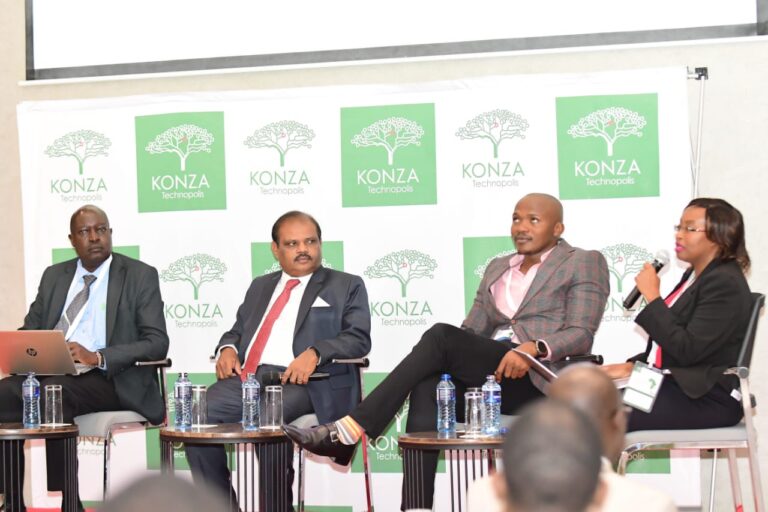Automation, AI & Intelligent Systems Transforming Service Delivery
Artificial Intelligence (AI) isn’t just driving demand in networking, it is reshaping how connectivity is managed, maintained, operated and optimised across Africa. It is transforming customer experience and empowering African connectivity providers to anticipate issues before they impact service, resolve incidents faster, and deliver more resilient, adaptive services at scale.
In a market that is being defined by hyperscalers, legacy monitoring and manual response models no longer align with customer expectations. AI for IT operations (AIOps) is now essential for meeting the performance demands of enterprise SaaS, cloud-based applications, and AI workloads in African markets. It is about moving from reactive troubleshooting to predictive, automated service management.
The adoption of AI in Africa isn’t driven by the need to demonstrate innovation. It is driven by necessity. By harnessing real-time data, machine learning and automation, connectivity providers can deliver a higher quality of service and experience, while optimising their cost base.
As an industry, we’re moving to a new phase of intelligent infrastructure that adapts, responds and evolves based on data-driven insights. The race to adopt AI is now about how providers can convert new capabilities into customer experience.
From Manual To Machine-Led: The Shift In Operations
The entire global AIOps market is expected to have a compound annual growth rate (CAGR) of 22.7 per cent from 2023 to 2028, according to research firm MarketsandMarkets. In Africa, the AI market is projected to reach $4.5 billion in 2025 with a CAGR of 26.27 per cent, reaching $18.27 billion by 2031, according to a recent report by Statista.
This growth reflects a broader shift across the entire ICT ecosystem, as African operators, cloud providers, and enterprises increasingly rely on AIOps. Connectivity providers have to align with their customers’ operating models as customer expectations continue to change rapidly.
Legacy service delivery that relied heavily on human intervention, siloed data sets, and reactive troubleshooting can’t keep up or scale with new demands across Africa. Today, intelligent infrastructure is replacing this model with machine-led decision-making, automation and integrated workflows.
At the heart of this shift are AI-powered platforms which can ingest vast amounts of telemetry data from across an operational environment and turn it into insights that can be quickly recognised and acted on. For example, CMC Networks reduced over 65 million telemetry events to just 10,000 relevant alerts or tickets by filtering noise and clustering related incidents. It captured data from across its MEA-wide network, customer support platforms and a range of systems, then used AI to correlate related events, suppress duplicates, and surface only the most meaningful incidents for action. It used far more data than any team of engineers could process.
This has streamlined incident management, reduced the burden on operations teams, and enabled a faster, more accurate response to real service disruptions. At the same time, AI can analyse patterns in real-time network data to identify emerging issues, often before they affect customers across African markets. This enables proactive maintenance, dynamic traffic routing and smarter capacity planning. That drives efficiency and gives connectivity providers greater control over their networking environment.
When a subsea cable is undergoing maintenance, the system automatically identifies impacted customers, reroutes traffic and notifies stakeholders, ensuring uninterrupted service and informed customer communications. Proactive communication keeps customers in the loop and ensures they understand any changes to their service or performance.
At the same time, AIOps tools allow engineering teams to simulate network changes, assess their potential impact and automate failovers based on predefined SLAs. This provides engineers with new insights and helps optimise and fine-tune the network for specific African customers or use cases. It empowers teams to adapt the network based on historical and real-time data continually. As more data is collected from across African networks and operations, deeper analysis can take place, new patterns will be recognised, and faster root cause analysis will happen.
Redefining Roles In The NOC
The result is consistent performance for customers across Africa, but it also changes the nature of network engineers’ jobs. AI frees engineers to focus on complex challenges and strategic improvements by automating repetitive tasks and simplifying data analysis. For instance, a large language model (LLM) with natural language processing enables non-technical staff to query network data using simple questions, improving cross-team collaboration.
No-code and low-code tools also allow teams to build and deploy automation workflows without deep programming knowledge. However, these advances also bring a need for new skillsets, blending traditional network engineering and on-the-ground expertise with scripting, data analysis and AI model training and optimisation.
In its ideal deployment scenario, AIOps is combined with local knowledge, on-the-ground teams and decades of experience serving specific markets. In Africa, this approach reduces risk, increases control and simplifies how connectivity providers and enterprises grow across the continent.
It bridges the gap between advanced automation and the nuanced realities of operating in diverse, often challenging environments across African markets. AIOps enhances visibility and decision-making, while local teams ensure contextual accuracy, accountability and responsiveness. It is a model that delivers consistent service quality, accelerates time to market and supports business continuity, even in markets with infrastructure or regulatory complexity.
The CX Dividends
- Faster Incident Resolution – AIOps helped reduce Mean Time to Repair (MTTR) by up to 38 per cent, streamlining incident triage through automated alert suppression and smart ticket correlation, leading to fewer service disruptions for African customers.
- Predictive Monitoring and Maintenance – By analysing real-time telemetry data, AIOps detects anomalies before they impact service. This enables proactive maintenance and minimises downtime that would otherwise frustrate customers.
- Rapid Customer Communications – When issues occur, AIOps systems can identify impacted customers and automatically trigger notifications, keeping users informed in real time to build transparency and trust.
- Efficient Resource Management – Automation frees up engineering and support teams to focus on responsiveness and new capabilities for customers.
- Personalised Service Delivery – AIOps enables fine-tuned network optimisation based on usage patterns, allowing African providers to deliver tailored performance for high-value customers or specific application needs.
- Cross-Team Empowerment – With natural language tools and intuitive interfaces, non-technical teams like sales and support can access and interpret network insights, improving coordination and customer support end-to-end.
The Road To Autonomous Networks And Self-Remediation
Looking forward, the goal in Africa is autonomy. Intelligent infrastructure will evolve into self-healing networks with systems that detect, diagnose and resolve issues in real time without human input. Connectivity will move beyond predictive alerts to full lifecycle automation, integrating AI into everything from provisioning and performance monitoring to customer portals, sales and planning systems.
Digital twins will allow teams across Africa to model and test network scenarios before implementing changes. Chatbots will evolve into smart digital assistants for field sales teams and customers alike.
At the network level, performance-based routing and automated load balancing will become standard. As these technologies mature, African connectivity providers will gain not just efficiency, but adaptability, and the ability to evolve their services in step with user needs and regional demands.
In this new era, intelligent infrastructure isn’t just an operational advantage for Africa, it’s the backbone of resilient, customer-centric service delivery across the continent.
This article was written by Charles Kuppusamy, Chief Operating Officer, CMC Networks









